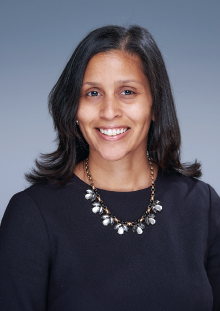An international group of 54 psychiatrists and other clinicians have restarted an effort to address the mental health issues of people of African ancestry on both sides of the Atlantic by creating the Africa Global Mental Health Institute (AGMHI) at a meeting last November in Capetown, South Africa.
The institute’s deeper roots date back to 2002, when the late Harvard psychiatrist Chester Pierce, M.D., brought together psychiatrists from Africa, the Caribbean, and the United States to discuss “the myriad mental health issues and challenges facing people of African descent.”
That idea lay fallow until the recent Capetown meeting, organized by clinicians from the Americas, Asia, and Africa.
“We’re in a better position now,” explained child and adolescent psychiatrist Michelle Durham, M.D., M.P.H., an assistant professor of psychiatry at Boston University School of Medicine and associate director of its Global and Local Center on Health Disparities.
“More people were involved this time, and we have more partners on the continent,” said Durham, the AGMHI’s director of education, in an interview. “Our next challenge is building an institution, and we have a timeline to do that with goals for the next one, two, and three years.”
Durham sees two primary issues that need to be addressed. One is the dearth of psychiatrists and other mental health professionals in Africa. The other is the inadequate research on people of African descent, wherever they live.
“People rely on studies and books that have nothing to do with the people of non-European descent they’re serving,” said David Henderson, M.D., chair of psychiatry at the Boston University School of Medicine and chief of psychiatry at Boston Medical Center.
In response, the AGMHI founders want to set up an international network of researchers that will develop clinical, epidemiological, outcomes, and other studies both in Africa and in the diaspora. That network then would inform judgments on both sides of the Atlantic.
To develop the mental health workforce in Africa, organizers hope to connect academic medical centers in high-income countries with those in low-income countries. The goal would be to strengthen training programs in psychiatry, psychology, social work, and public health (
Psychiatric News, August 7, 2015).
AGMHI also plans to work with government health ministries and local and international organizations to develop support for mental health policies and research.
Information must be a two-way street—or perhaps a roundtrip plane ride, said Durham.
“Bidirectional learning is also important,” said Durham. “We have a lot to learn from each other.”
She cited one example from the large Ethiopian population seen at Boston Medical Center.
Epidemiological studies in Ethiopia found a 5:1 male-to-female ratio in the prevalence of schizophrenia, rather than the usual 1:1 found globally. Further research revealed that families were hiding women with mental illness in an effort to protect them, delaying treatment by 10 to 20 years. Research methods expert and conference participant Christina Borba, Ph.D., M.P.H., an assistant professor at the Boston University School of Medicine and director of research in the Department of Psychiatry at Boston Medical Center, intends to study Ethiopians living in Boston to see if similar practices exist there. If they do, the medical center plans to develop a program to work with the community to clinically detect those women and bring them in for care.
“People who come here bring their countries with them,” observed Henderson. “But each country needs people with research skills to understand local conditions. They have to develop their own data to take care of their own patients.”
“We see challenges locally that we hope to address globally,” said Durham. “We hope to do that by using clinical, research, policy, and teaching perspectives to build up resources overall.” ■
The website for the Africa Global Mental Health Institute can be accessed
here.

